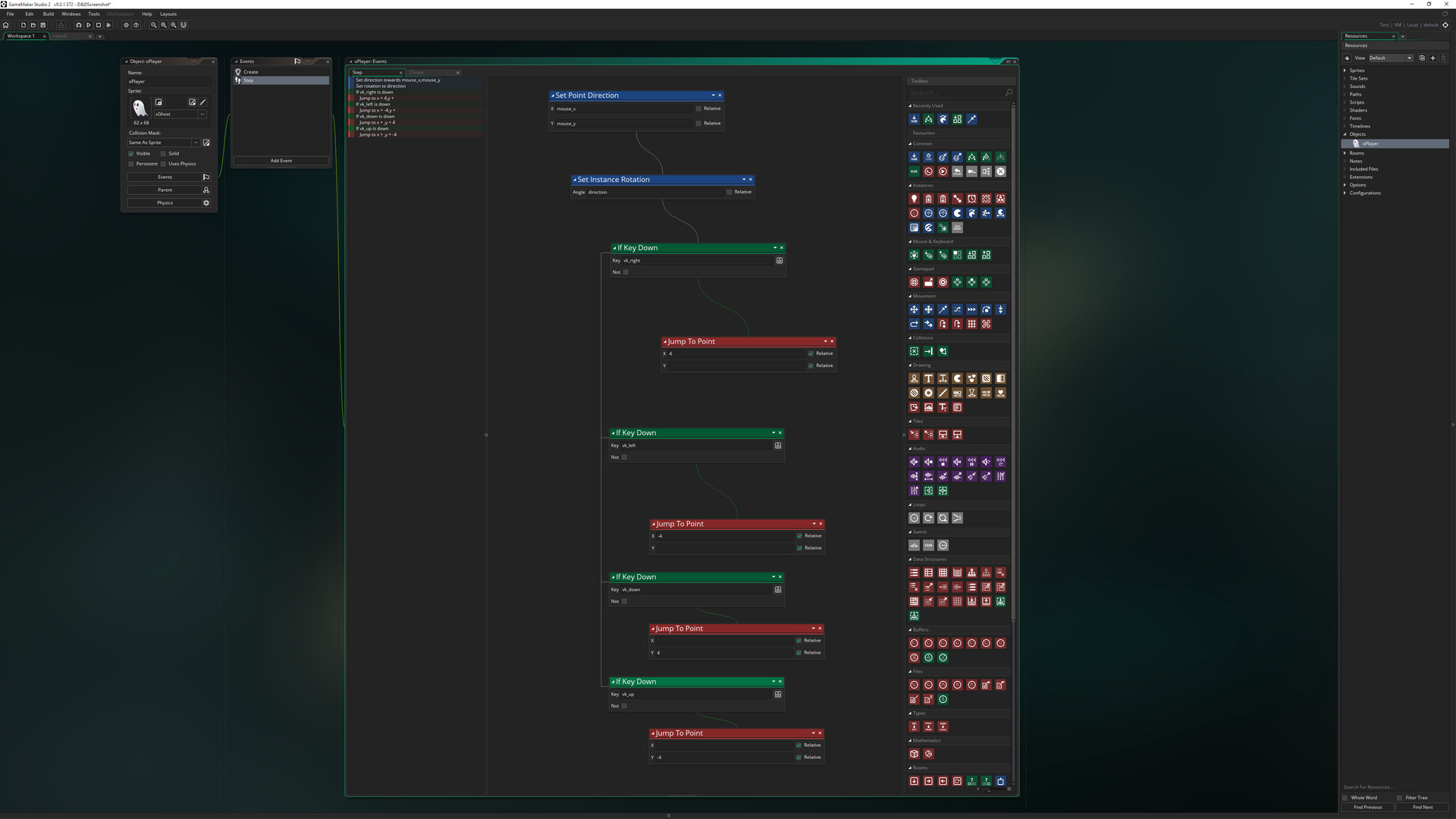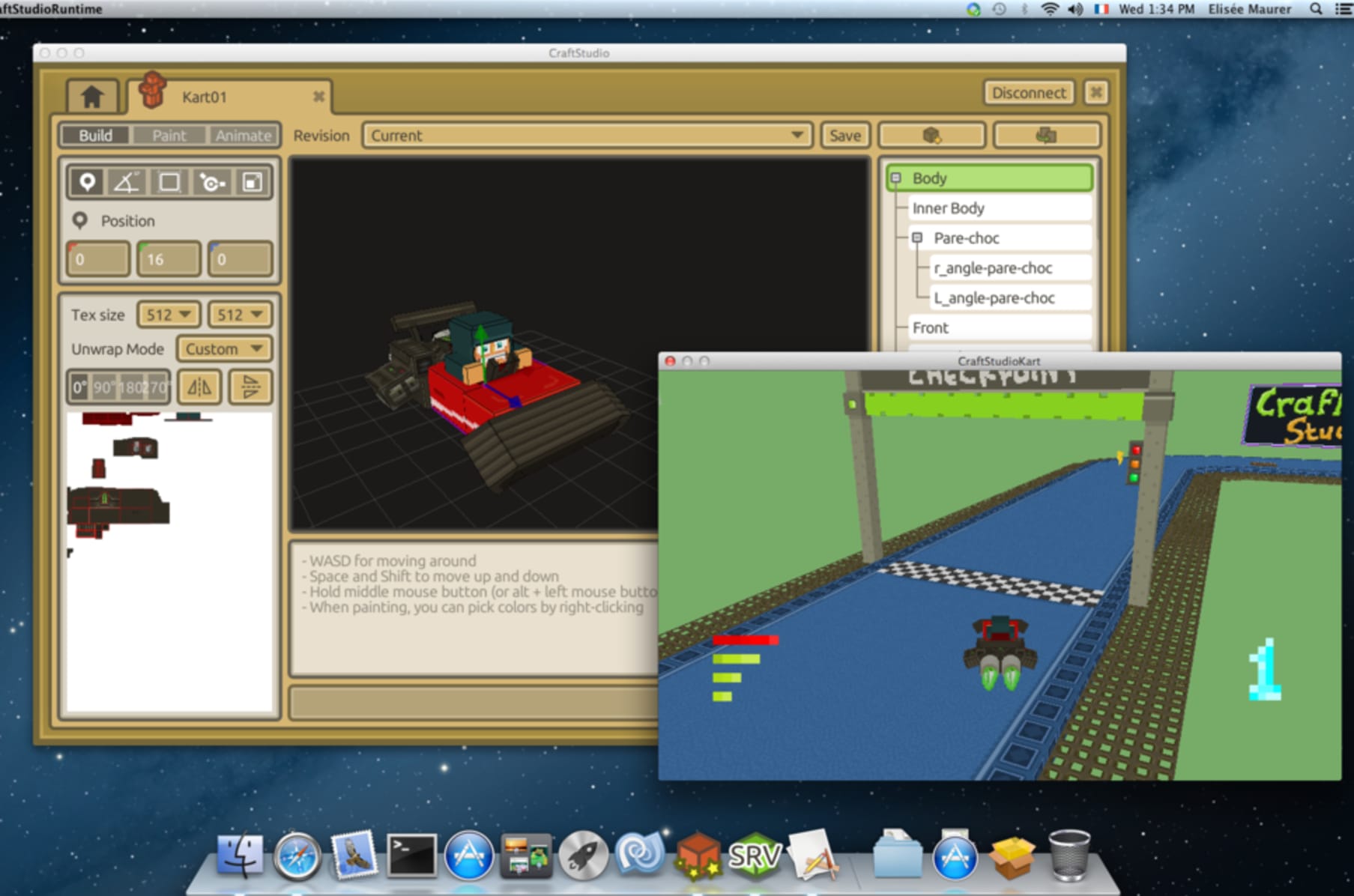GameMaker: Studio is an easy to use program for creating your own computer games.
- How To Export Game Maker Game To Friends From Mac Os
- How To Export Game Maker Game To Friends From Mac Computer

Yes but how exactly do i export the game from my computer? I have it saved in a folder called Project1 which i assume all of you have as well. Do i just copy everyhting in there and tell them to run the file called 'Game'? Google quietly launched Game Builder in November 2018 on Steam, with the Area 120 team iterating in public. For example, version 2.0 made it easier to find other games on Steam.
GameMaker: Studio by default only permits you to export games for Windows, while the Professional version also permits you to compile for macOS and Linux (Ubuntu) (as well as use additional functionality). If you have bought GameMaker: Studio through Steam, you will also have an additional target module to export your games to the Steam Workshop. You can get further additional modules which will permit you to export to other platforms like HTML5, Android and iOS.
- The HTML5 module enables you to produce ready-to-run HTML and JavaScript code that you can host or embed on any website
- The Android/Fire module enables you to create and distribute *.apk files
- If you have an iOS developer account then with the iOS module you can also publish to iPad, iPhone and iPod
- With the Mac OSX module you can target the Apple desktop market
- The Linux module permits you to make desktop games that run on the Ubuntu operating system
These modules are available only to those who have upgraded to the Pro version of GameMaker: Studio (more information on the different versions can be found here).
This section of the help file gives you all the information you need for creating your first games. Later sections will discuss more advanced topics, how to polish and distribute your game, and the built-in programming language GML that considerably extends the possibilities of the product.
Information on the basic use of GameMaker: Studio can be found in the following sections:
- Introduction
- Installation and System Requirements
- Activation
- GameMaker: Studio Overview
- The Graphical User Interface (GUI)
- - The File Menu
- - The Edit Menu
- - The Resources Menu
- - The Scripts Menu
- - The Run Menu
- - The Help Menu
- - The File Menu
- Loading Sprites
- Sounds And Music
- Backgrounds
- Defining Objects
- Events
- - Create Event
- - Destroy Event
- - Alarm Events
- - Step Events
- - Collision Event
- - Keyboard Events
- - Other Events
- - Draw Event
- - Asynchronous Events
- - Create Event
- Actions
- - Move Actions
- - Main Actions, Set 1
- - Main Actions, Set 2
- - Control Actions
- - Score Actions
- - Extra Actions
- - Draw Actions
- - Using Variables and Expressions in Actions
- - Move Actions
- Creating Rooms
- - Settings
- - Backgrounds
- - Objects
- - Settings
- Game Information
- Distributing Your Game
© Copyright YoYo Games Ltd. 2018 All Rights Reserved
Although RPG Maker doesn’t officially support building games for other platforms than Windows, some people have succeeded in doing so. All available options will be explained in this blog post. So if you know of any other options to port an RPG Maker game to other platforms, please contact me or leave a comment below, so I can improve this article.
RPG Maker is probably the most popular tool to make your own JRPG’s. Unfortunately, it is only available for Windows, and can only create Windows games.
As far as Enterbrain (the creator or RPG Maker) is concerned, Windows will remain the only platform that they officially support. This is extensively explained in a forum post on their official website. The general conclusion is that it’s technically too difficult or costly for them to support other platforms. RPG Maker heavily depends on Windows only technology, which makes it nearly impossible to go beyond the Windows platform.
Final Fantasy, the mother of all Japanese role-playing games
Although technically difficult, exporting RPG Maker games to other platforms has always been a mayor feature request, and I’m sure Enterbrain had many attempts to do so. In 2012 for example, someone named Mitchell declared on Steam that they were working on supporting other platforms, and it even got confirmed by other reliable sources. But since then nothing has turned up, so I’m afraid we can assume that all these efforts were in vain.
So if exporting your games to other platforms is not officially supported, what options are there? Well, let me explain what’s currently known on this subject.
Don’t use RTP resources!
First of all, if you ever intent to port your game to non-Windows platforms, make sure you don’t use any RTP or RTP derived resources. That license is very restrictive, and doesn’t allow you to use these resources on games that are not using the RPG Maker Windows engine. So if you don’t want to get sued, stay away from using the default RTP resources.
Use MKXP for Linux/Mac
How To Export Game Maker Game To Friends From Mac Os
The commercial game “To The Moon” was created with RPG Maker XP, and was successfully ported to Linux. It uses the mkxp library, and it is probably the most straight forward way of porting your RPG Maker game.
It is an open source library that provides the same Ruby Game Scripting System as RPG Maker XP (RMXP). And if I take a look at the libraries used, this could also be used for a MacOS version of your game. Since it’s Open Source, a good programmer should be able to make it available on MacOS X. But remark that this is for RPG Maker XP, and not the newer RPG Maker VX (Ace) (RMVX).
Porting your game to another engine
When you want a version of your RPG Maker game to run on other platforms such as iPhones, iPads, Android tablets or phones, you will have to do some manual porting. This means using another game engine and programming language to reconstruct the logic of your game.

Zenonia, an RPG for iPhone
The first game engine that comes to mind is Unity 3D. It supports plenty of platforms (iOS, Android, Windows Mobile, BlackBerry, OSX, Linux, Web Player, PS3, Wii U, Xbox 360), isn’t too expensive, and has a large community.
Another option is using Haxe in combination with OpenFL. You can find a detailed explanation on gamasutra on how to use it for creating your games. It also supports plenty of platforms like Windows, Mac, Linux, iOS, Android, BlackBerry, Firefox OS, Tizen, Flash and even HTML5.
But whatever engine you choose, it still requires a lot of (technical) work, and you need to repeat this for every game you want to export.
Plan B: Emulation

Emulation is an option if you want to play RPG Maker games on other platforms, but not if you want to distribute your own game on these platforms. Some emulators even run the complete RPG Maker editor.
For Linux, you can use Wine as described in this post.
A similar solution exists for MacOS using Virtual Box, more details here.
For android, there is a Neko RPGXP Player that can play RPG Maker games on your android device.
Conclusion
None of the solutions currently available are easy. They all require a lot of effort. This is probably also the reason why commercial game developers such as Amaranth games and Aldorlea haven’t ported their games to other platforms. I’m sure they are disappointed for not being able to make their games available on Mac or Linux, or on the now so popular mobile platforms such as the iPad, iPhone or Android devices. But for now, no proper solution exists.
Working on the solution
How To Export Game Maker Game To Friends From Mac Computer
One of the reasons why I started my own RPG creation tool is to support as many platforms as possible. Since I have experience in programming and porting games to a long list of different platforms, I know what technical things you need to take care of when developing a game engine. If you haven’t considered it from the beginning, it might be really hard to get your game on other platforms (but not impossible).
So, what have I done to support this? First of all the main code base of RPG Playground is written in ActionScript3, which allows me to make game builds (out of the box) for the following platforms: Flash, Windows, Mac, iOS and Android. Exporting to any of these platforms can basically be done by a “push of a button”. AS3 also supports other platforms such as the Ouya game console, but extra libraries need to be used for that (which isn’t a major issue).
Unfortunately, Linux is not supported, and neither are game consoles. So for supporting those platforms, a ‘real’ port will need to happen. Since my code base is structured in a way described in this blog post on how to structure your game code, only the generic game library will need to be ported. This is not an effort that is currently in progress, but it will happen once RPG Playground is more feature complete.
One of the main goals of RPG Playground it to let you export your games to any popular platform, by a simple push of a button. That would be really nice if you could already do this, right? But unfortunately, RPG Playground is still under heavy development, and a lot of features are still missing, so I’m afraid for now this also isn’t a viable option. But if you believe this might be a solution in the future, go and start making your own game with RPG Playground.
Comments are closed.